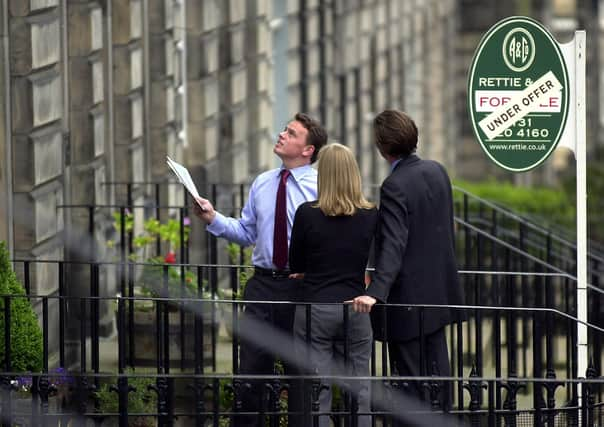How landlords aid Scotland’s EU workers - David Alexander


Such were my thoughts recently when I read that the Home Office had vastly underestimated the number of people from EU countries who had sought “settled” status after Brexit, allowing them to continue to live and work in the UK.
As a dedicated “remain” voter in the 2016 referendum one of my fears was that Brexit would lead to a vast exodus from the UK of workers from other EU countries. Some might say this was motivated by a vested interest in that such people provided valuable business for my agency and like-minded companies – and, yes, that would be true. However dealing personally with some of those from various parts of the Continent seeking accommodation in the Edinburgh and Glasgow areas confirmed that they were, for the most part, hard-working and that their presence here provided a net benefit to the Scottish economy. True, I did come across some chancers whose main interest was a benefits lifestyle but no more than you would find in the native population.
Advertisement
Hide AdAdvertisement
Hide AdTherefore I was pleased to learn that 5.2 million of them had sought settled status in the UK, much larger than the 3.5 million estimated by the Home Office.
But, and it is a very big “but”, it is well to remember how the government of Tony Blair estimated that there would be no more than 13,000 extra migrants per annum coming to the UK as a result of eight central and eastern European countries joining the EU in 2004. What in fact happened was an unprecedented level of immigration over a relatively short period with little or no thought given by those in government to the additional infrastructure required, inevitably leading to additional pressures on the health service, schools and the housing sector.
So let me skip health and education and turn to the area about which I can refer with reasonable authority.
No matter how quickly some EU migrants took to Britain and the British way of life, this did not include our penchant for home-ownership.
The reasons were varied and quite simple. Some came from countries or regions where home ownership was not part of the culture. Others may have already owned a home and did not see the need to take on another property in the UK. More still were probably “fence-sitters”, as the clamour for a referendum grew and they felt unsure of what their status would be in the event of victory for the “leave” campaign.
However even those desirous of settling permanently in this country and “going native” by becoming ensconced in a home of their own, would have found it difficult – at least initially - to obtain mortgages given they had little or no credit history in the UK.
So how did these people managed to find a roof over their heads?
Step forward, the much-maligned private landlord.
Without the existence of private rented housing, I simply do not see how most of these migrants could have been decently accommodated, leading not only to angst for them and their families but also to those firms eager to employ them. Think about it the next time you receive good restaurant service from a knowledgeable Hungarian waiter or open a carton of fresh raspberries picked in Perthshire but only made possible because someone from Bulgaria was willing to do the job.
Advertisement
Hide AdAdvertisement
Hide AdLandlords have, of course, also benefited from this demand; they are, after all, in business and therefore motivated by profit rather than altruism. But the fact remains that they have provided a vital service – accommodating migrants and those among the native population requiring rented housing - on a scale which neither the State nor private housebuilders could replicate.
There is surely a lesson here for the Scottish Government, elements of which, more recently, have not been too landlord-friendly. Private rented housing is more than just an umbrella of disparate businesses and individual investors seeking a profitable way through life, it has now become “built-in” to the infrastructure of the wider economy. Those tempted to play with it do so at their peril.
David Alexander is managing director of DJ Alexander
Comments
Want to join the conversation? Please or to comment on this article.